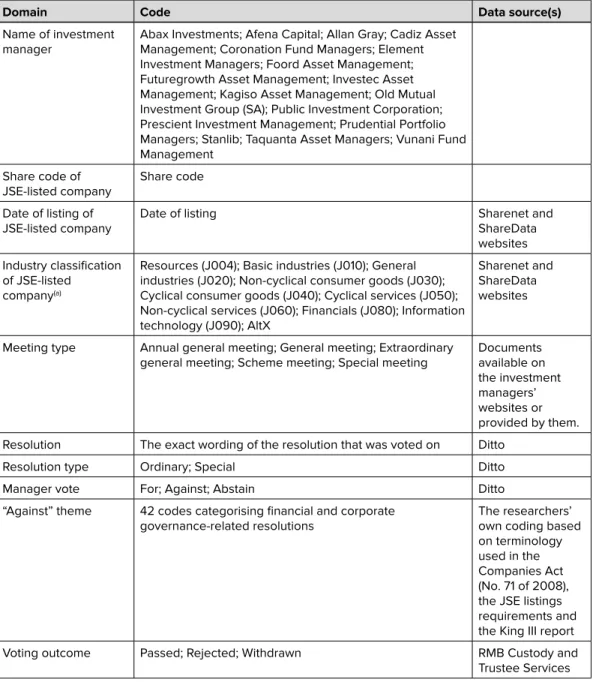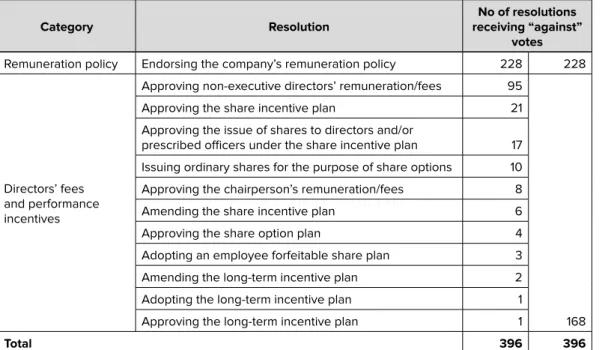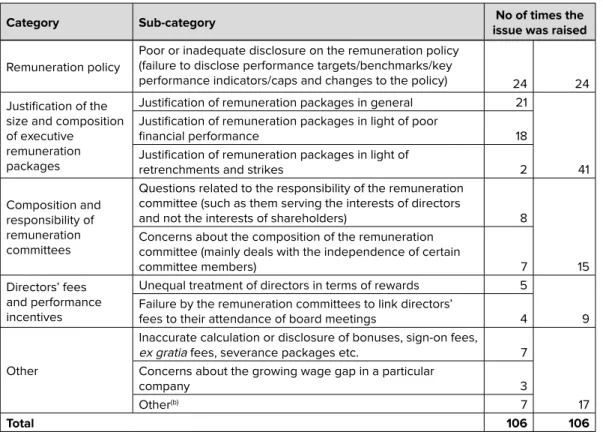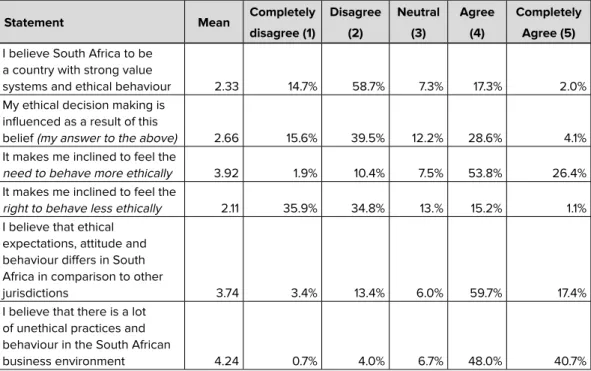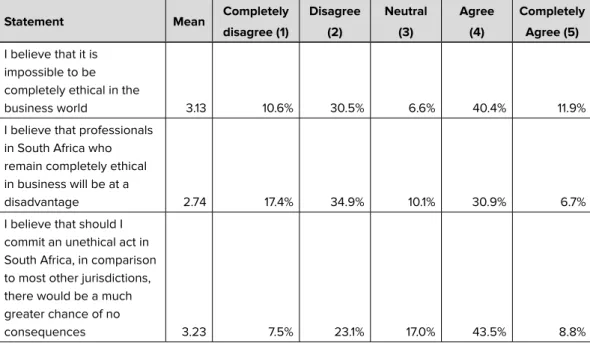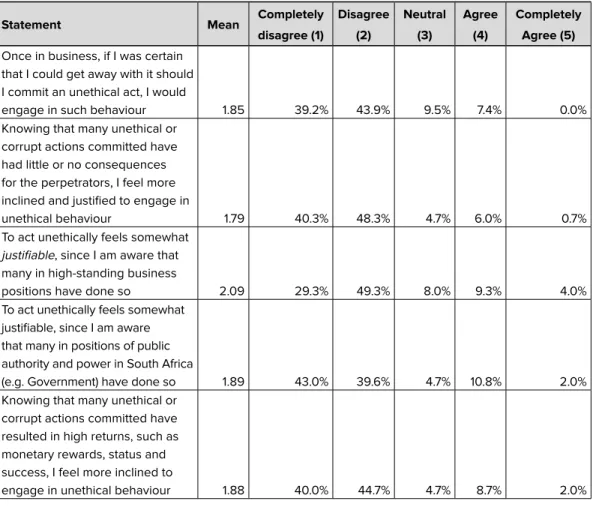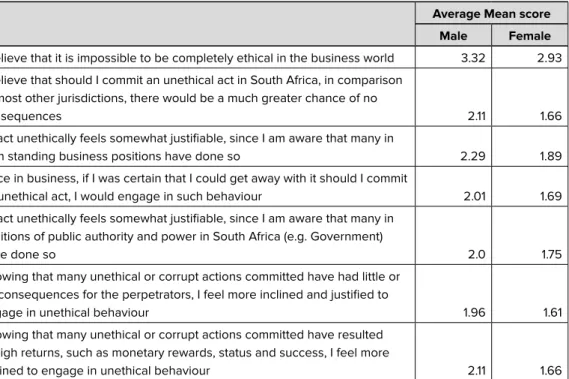As noted earlier, very limited academic research has been conducted on shareholder activism in South Africa. The Government Employees Pension Fund (GEPF) was one of the pioneers of shareholder activism in South Africa. To encourage institutional shareholder activism in the country, the Savings and Investments Association of SA has drawn up the Code for Responsible Investment in South Africa (CRISA, 2011).
As a champion of good corporate governance in South Africa (Hasenfuss, 2006), Botha is known for raising pressing questions about the size and lack of disclosure of application fees, stock option grants, relocation allowances, ex gratia payments and bonus reclaims paid to directors before shareholder approval was obtained (Hogg, 2009; Monteiro, 2009; Carte, 2010; Mantshantsha, 2010; Crotty, 2012a). According to one market commentator, "the current [level of] disclosure is so sketchy as to be almost pointless."
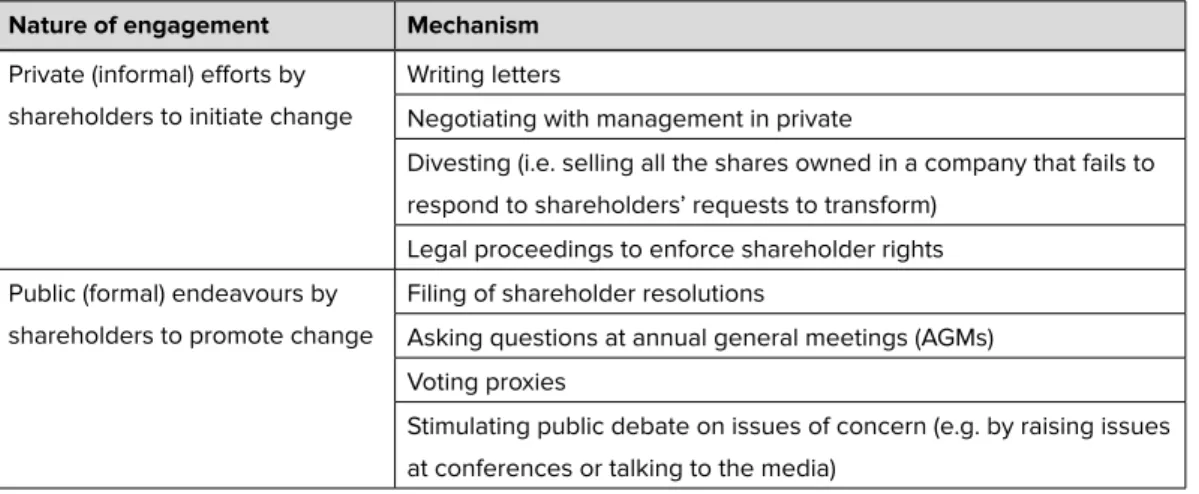
Reviewing state-owned
The current state-owned entities (SOEs) governance landscape varies from fragmented accountability frameworks and human factors to a complicated range of SOEs typologies, i.e. as the proposed governance and seamless legal framework is not an absolute solution to all SOEs challenges, test the study whether the option can help arrive at a liberating practice that will bridge and fulfill the corporate and developmental aspirations of the state. South Africa, like other countries, has made efforts to reform the landscape of state-owned entities (SOEs).
Despite the entities being the main drivers of the formal sector of the economy, providing the bulk of economic growth as the most important entities providing many social goods and services to ensure the quality of life for all South Africans, the SOEs are legislative and policy frameworks. fragmented. This limits the entities in their efforts to respond as effectively as possible to the socio-economic development mandate of the state.
Another hurdle faced by state-owned companies is that private companies like to operate in the competitive environment of the Companies Act. The competitive advantage of the state-owned enterprises continues to be frustrated by the PFMA's strict standard protocols. In doing so, she violated the Executive Ethics Code and the principles of Corporate Governance (Public Protector.
The entire SOE landscape needs to be aligned in support of the National Development Plan (NDP), Vision 2030. A regular review of SOEs is needed as there is currently unfinished business to control SOEs. The focus should be on facilitating the ability of SOEs to meet the country's development agenda as represented in the DRP, Vision 2030.
Corporate governance reform must face challenges. state-owned enterprises that extend into social and commercial environments, otherwise the results will be disappointing. An assessment of the regulatory framework governing state-owned enterprises in the Republic of South Africa. Statement by Minister Collins Chaban on the T.O.R and the Presidential Review Board's Review Framework and Methodology.
HSRC Report on State-Owned Entities Policy Dialogues to the Royal Netherlands Embassy on behalf of the Presidential Review Committee (PRC), 5
How South African societal and circumstantial influences affect the
To effectively address ethical awareness through formalized tertiary education, ethical standards need to be better understood. This article examines the effects of South African societal influences on future South African chartered accountants, through exploratory questionnaire research. Findings indicate that although participants experience low levels of ethical behavior in South Africa, their ethical decision-making is generally not negatively affected, and most feel the need to behave more ethically.
Influences from the country environment, including lack of consequences, self-interest, and justification, negatively affect the ethical standards of some participants, and although not statistically significant, these are considered important qualitative findings. Many participants seem to believe that it is not possible to be completely ethical in business and that by remaining ethical in South African business they will be at a disadvantage. Female ethical standards were found to be less affected by social influences than those of their male counterparts.
Ethics in the South African Accountancy Profession Section 100.1 of the South African Institute of Chartered Accountants (SAICA) Code of Professional Conduct recognizes that "A hallmark of the accountancy profession is its acceptance of the responsibility to act in the public interest".
African Chartered Accountants
With the introduction of the 2010 "SAICA Competency Framework" (a framework that addresses the expectations of a South African chartered accountant at the start of the profession, to uniquely equip them to better meet the needs of the market), South African universities had to commit to developing structures to ensure a strong foundation in ethics for aspiring members of the profession (SAICA, 2010; SAICA, 2011a). According to SAICA, “remaining a member of the world's number one ranked CA (SA) designation remains enviable” (SAICA, 2011b: 1). In view of the above, this research has been conducted to increase the understanding of future CA(SA)s' ethical standards, in particular the degree of influence of South African societal conditions and challenges.
A quantitative approach using quantitative statistics was used to analyze the collected data. Biographical characteristics of the respondents were ascertained in the first part of the questionnaire and are presented in Table 1. A majority of the respondents identified themselves as Christians, followed by Hindus, Muslims and Catholics.
Any concerns regarding the sensitivity of the questionnaire were comprehensively addressed by ensuring anonymity. Encouragingly, however, the findings of the current study indicate that the statistical majority of respondents have not allowed the situation in South Africa to negatively affect their ethical standards. There was found to be a significant relationship (5%) between having or not taking a formal university course in ethics and the belief in the right to act less ethically in South Africa.
Finally, as mentioned earlier, to the best of the researcher's knowledge, limited current research has been conducted in South Africa with respect to the area of study that this article has attempted to address. This is for the validity of the results to be more certain about the perspectives of the general population, and to identify possible differences in the effects of variations in ethics education. How entrepreneurs deal with ethical challenges - An application of the business ethics synergy star technique.
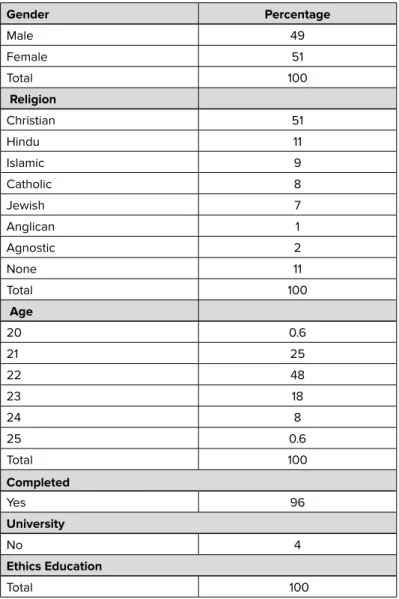
The power of the fish is in the water
According to these authors (ibid), Embedded CSR concerns CSR that permeates all the decisions and actions of an organization, corresponding to the starting point of my article (see Visser, 2011, for a similar view). What would differentiate CSR from organizations operating in ECs and make Embedded CSR critical. The five building blocks can be considered as meaning-making tools regarding Embedded CSR in ECs (Basu & Palazzo, 2008).
In this way, an organization will meet EC Implication 1 for Embedded CSR in ECs (see the above discussion of organizational and people implications of ECs for CSR initiatives). All of the above are necessary to realize EC Implications 2, 3 and 4 of Embedded CSR in ECs, which were explained earlier. This will enable an organization active in ECs to realize EC Implication 2 of Embedded CSR.
This strategic alignment can only come about through the careful design of a well-thought-out strategy for embedded CSR – how the intended legacy of embedded CSR will be realized (AƁländer, 2011; Chandler & Werther, 2014; Ganescu, 2012; Ragan et al. al., 2015). In the case of a global organization, differentiated embedded CSR initiatives will need to be developed in the respective ECs that make them up. The presence of Embedded CSR in the executive suite will give the organization's CSR the necessary high-level organizational attention and the status it deserves (Aguinis, 2012; Ragan et al., 2015; Strand, 2013; Matthews, 2014).
A deep and broad shared understanding in the organization must be cultivated of the dynamic interplay between the various Embedded CSR performance dimensions that are tracked and assessed (i.e. the evolving, dynamic overview). In this way, an interactive Embedded CSR model of interdependence of Embedded CSR variables can be empirically established. It was argued that the overall, essential, unique character of Embedded CSR in EUs is to be found in a wholehearted identification with and (pro-)active activation of the EU by the organization in the radical societal transformation journey that an EC undertakes. in the EC country's quest to become a fully integrated, dignified, contributing and reputable citizen of the world.
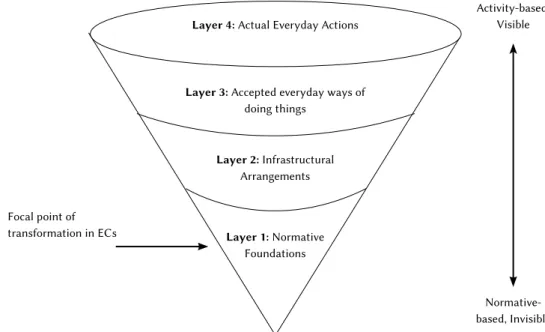
BOOK REVIEW
I have been in business for 30 years and have never had to worry about "business ethics". First, the speaker is wrong to think that he "never had to worry about 'business ethics'." Of course, this is the same idea hinted at by the cheeky title of Business Ethics and Other Paradoxes: it is paradoxical, as many assume, that business can be ethical because the two concepts are apparently opposites.
Let's take for example the case of whistleblowing, to which Business Ethics and Other Paradoxes devotes one chapter (chapter 12). In view of this, it is an ideal book for the university student of business ethics. Although Business Ethics and Other Paradoxes does not present itself as a textbook for college students, it is clear that the book was written with that purpose in mind.
So it is as such that I am reviewing Business Ethics & Other Paradoxes: as a book written primarily for the use of congressmen and students of a business ethics course. This is the value of philosophy for business students and the careful student of business ethics. I suspect some readers will complain that Business Ethics & Other Paradoxes frustratingly presents more questions than answers.
Business Ethics & Other Paradoxes is an unashamedly philosophical work (as its tagline goes: How philosophy answers questions about business ethics) and, as I've argued, is one of the book's main virtues.
